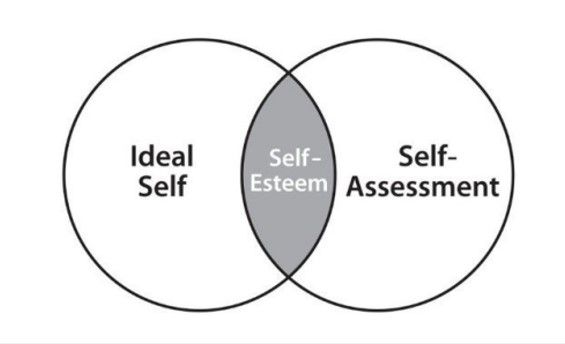Self-Esteem
What You Should Know about Self-Esteem
Be who you are meant to be, but first you must figure out who that is.
Posted May 28, 2023 Reviewed by Hara Estroff Marano
Key points
- You don't have to accept the values you inherited.
- Fitting in is not belonging.
- Approval is an addiction.
- Be good enough, not perfect.
Depression: I’ve studied it, treated it, and experienced it.
Everyone with depression suffers from a lack of self-esteem. In a previous essay, I addressed the bio in Engel's important biopsychosocial model for depression,1 which holds that there are biological, psychological, and social factors that contribute to the development and maintenance of depression. For some, self-esteem dominates the psych component of the biopsychosocial model of their depression.
.jpg?itok=vJVN_RRz)
My patients often say, “I just want to be happy.” I respond, “A pill isn’t going to fix it. Are you willing to do the work to make that happen?”
Growing up in a bubble
I grew up in a small town in rural Nebraska, where everyone looked alike, thought alike, and believed alike. My values were passed down to me: Boys don’t cry. Always compete to win. Never show your vulnerability because someone will beat the crap out of you if you do.
But I cried, felt vulnerable, and didn’t like sports. I tried to fit in and was somewhat successful. But to fit in, I sealed off from others a large part of who I am. My high school friends would be surprised to know how lonely and powerless I felt.
Fitting in is not belonging
Accepting that I was gay was not so much coming out as letting others in. Gay people don’t own this issue. Straight people also need to present themselves as who they really are. You rarely find lasting friendships until you show up as your unabridged self.
The formula for self-esteem
This diagram gives a visual picture for building self-esteem. My patients easily grasped the concept; the work involves implementing it.

The left circle represents the ideal self or simply the person you want to be. The right circle is self-assessment, the person you think you are. Where the circles overlap comprises self-esteem. In other words, we feel good about ourselves when we see ourselves being the person we want to be.
But before becoming who you are meant to be, you must first figure out who that is.
Ideal self
Our ideal self is the sum of all the traits, values, and qualities we cherish. We want to be competent, attractive, well-liked, and morally good.
My early ideal grew from the tribal nature of my Swedish hometown in Nebraska. We "inherit" our original social, religious, and political values. Those values are all the shoulds. They are also all the should nots.
I knew who I should be. But I also knew who I shouldn’t be. I’d inherited prejudices against people who are different and didn’t share those rural Nebraska values. Inside this bubble, I’d had no exposure to those from different regions, religions, or cultures that might challenge those values.
I wanted to be loved by those who had passed down those values to me, and I believed I would not be loved if I didn’t share them. I felt I couldn’t risk their disapproval.
Brené Brown writes: “When your path is clearly laid out before you, it really isn’t your path."
Whose life was I living?
As I matured, I wanted to puncture that bubble. As I exposed myself to a larger world, I realized I could deconstruct those values dictated to me. I could retain some values, adapt or adopt new ones, and create something that was all my own. I needed to take back control of my life and become the person I wanted to be. With few exceptions, I didn’t lose the love of those who were important to me.
When people consider changes, they magnify the negative and minimize the positive consequences. Psychologists refer to this fear as awfulizing.
The ideal self is not a perfect self. Those who strive for perfection will fail because perfection doesn’t exist. I'd sought to be a perfect dad. Reading Winnicott’s description of good-enough parenting relieved me of that pressure.My kids confirm I wasn’t the perfect parent; I trust they find me good enough. No one else’s opinion really matters to me.
Our ideal self should be ambitious but still attainable. If it’s too easy, we think anyone could do that. Too monumental and we set ourselves up to fail. And our ideal evolves as our life changes.
Self-assessment
Depressed people misperceive themselves; they castigate themselves. Their self-assessment circle is tiny, so there is little overlap to define self-esteem. They blame themselves, their parents, and a dystopian world. And their circles of ideal self and self-approval swim around in a cesspool of shame and guilt.
Absolutisms dominate their narratives: Always/never, everyone/no one. I tell them: “Listen to how you speak. You sound like a teenager! What are the facts? Doing one bad thing does not always make you a bad person. Stop saying, ‘I’m sorry.’ When you say ‘I should' or 'I shouldn’t,’ who is speaking for you?”
People use drugs, alcohol, gambling, food, sex, and porn as elixirs to compensate for damaged self-esteem. Approval operates in the brain in much the same way as addictions.
You get a hit of approval. It feels good, but it is transient and superficial. So, you go back for another. And another. But the high from each diminishes. Drugs first make you feel high, but then you need them just to feel normal.
You don’t need permission to live your life; you must seize it. But how does one do that?
Shame and guilt
The formula I outline above has nothing in it about approval. Approval does not lead to self-esteem. The only thing that matters is the approval you learn to give yourself. When I began to align who I wanted to be with who I thought I was, my shame and guilt subsided.

Your homework
Here are the steps you need to take to feel good about yourself:
- Take charge of who you want to be and show up as that person.
- Learn to see yourself as you are. You're good enough.
- Look to yourself rather than others for approval.
Dedicate some time to yourself. In the monastic tradition, give your phone to someone and fast from all technology. Lay out your own path for your life. Write down your resume as you wish it to read five years into the future. Include your professional, personal, and financial goals. Keep it in a drawer and review it three or four times a year. Measure yourself by your progress. Use it to define and prioritize manageable interim goals.
Self-esteem is not a gift someone gives you. You have to do the work.
Read more about the physical and genetic elements of depression of Engel's biopsychosocial model.
References
1. Papadimitriou G. The "Biopsychosocial Model": 40 years of application in Psychiatry. Psychiatriki. 2017 Apr-Jun;28(2):107-110. Greek, Modern, English. doi: 10.22365/jpsych.2017.282.107. PMID: 28686557.




